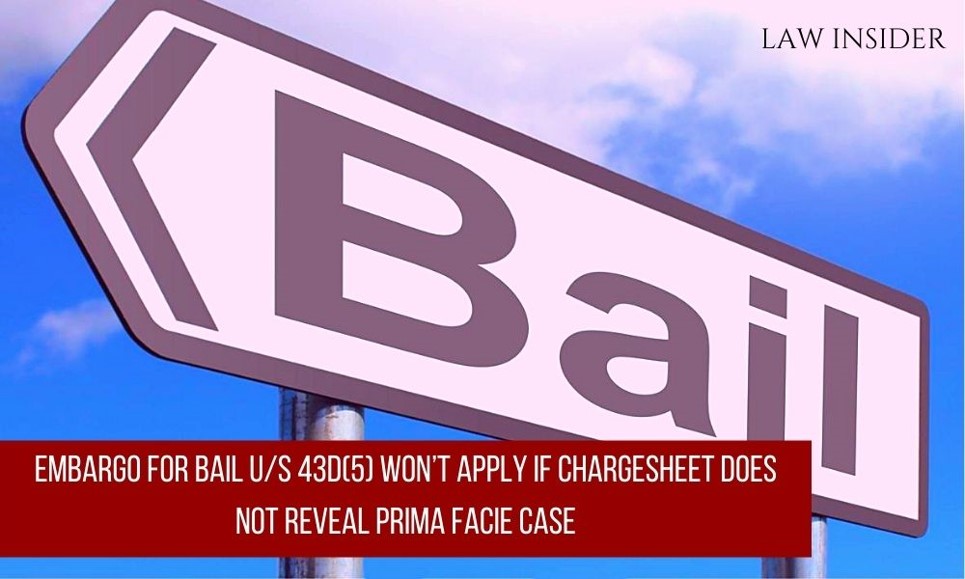Chaini Parwani –
Published On: October 29, 2021 at 19:08 IST
The Supreme Court observed that the embargo for grant of Bail under Section 43D(5) of the Unlawful Activities Prevention Act (UAPA) will not be considered if the Chargesheet does not disclose a Prima Facie case.
A Bench comprising of Justices Ajay Rastogi and Abhay Sreeniwas Oka noted that “The stringent conditions for grant of Bail in sub-section (5) of Section 43D will apply only to the offences punishable only under Chapters IV and VI of the 1967 Act…The embargo will apply when after perusing charge sheet, the Court is of the opinion that there are reasonable grounds for believing that the accusation against such person is prima facie true. Thus, if after perusing the charge sheet, if the Court is unable to draw such a prima facie conclusion, the embargo created by the proviso will not apply.”
The Bench was deciding the case of Bail related to Kerala students Thwaha Fasal and Allan Shuhabi, who were charged under the UAPA over alleged links to banned Maoist group.
The Special National Investigation Agency (NIA) Court permitted them Bail after observing that the chargesheet did not disclose a prima facie case against them, the High Court on appeal reversed those findings.
Further the High Court had set aside the Bail granted to Thwaha but considered Allan’s Bail on consideration of his medical condition of depression and younger age.
The Supreme Court allowed Thwaha’s appeal against the High Court judgment and dismissed NIA’s appeal against the bail granted to Allan.
Further the Judgment drafted by Justice Oka referred to the Supreme Court precedent in National Investigation Agency Vs Zahoor Ahmad Shah Watali and observed that the Court has to consider whether there are reasonable grounds for believing that the accusation against the accused is prima facie true and that the scope of inquiry is to decide whether prima facie material is available against the accused of commission of the offences alleged under Chapters IV and VI.
Furthermore, the Judgment observed that the Court is not expected to do a “mini trial” to ascertain prima facie case and that at this stage, the Court has to take the material in the chargesheet “as it is”.
The Court highlighted that in this particular case, taking the charge sheet as correct, as maximum, it can be observed that the material prima facie establishes connection of the accused with a Terrorist Organisation CPI (Maoist) and their support to the Organisation.
Further the Court alleged that there is no material to show that they had “intention to further the activities” of the terror group, so as to consider the grave offences under Sections 38 and 39 of the Unlawful Activities Prevention Act (UAPA).
Furthermore, the Supreme Court noted that the discovery of the Special Court was based on the materials of the chargesheet and that the High Court has not produced any prima facie case regarding the intention to further the activities of terror group.
The Court also noted that stringent conditions have been imposed by the Special Court for Bail. Accordingly, the Special Court’s Order was restored and the High Court’s Judgment was set aside.
Case name and Citation: Thwaha Fasal Vs Union of India LL 2021 SC 605
Case no. and Date: CrA 1302 OF 2021 | 28 October 2021
Coram: Justices Ajay Rastogi and Abhay S. Oka
To read the Judgement:
[embeddoc url=”https://www.lawinsider.in/wp-content/uploads/2021/10/7136_2021_14_1502_30896_Judgement_28-Oct-2021.pdf”]
